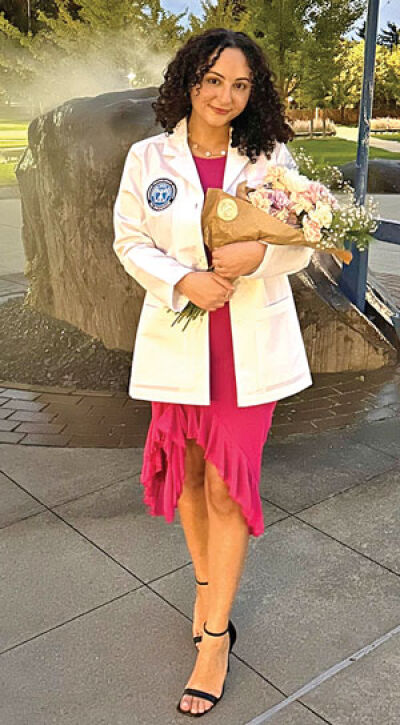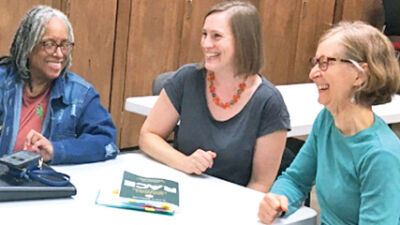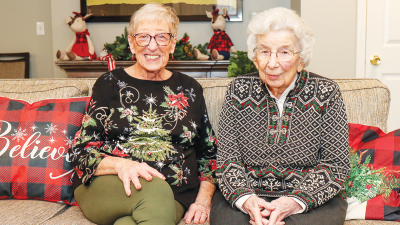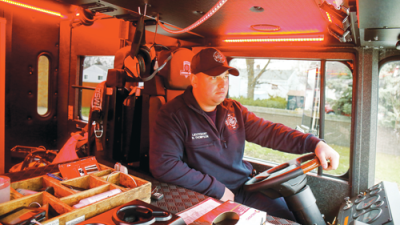
Lara Nassar is a physicians assistant student at LTU entering her second year and will be one of the nine students sent to a clinic in rural Michigan for three months starting the week of Sept. 2.
Photo provided
SOUTHFIELD — Lawrence Technological University said it will use a $1.7 million federal grant to bridge the gap for rural areas’ access to health care.
The U.S. Department of Health and Human Services Health Resources and Services Administration grant will help place students in their second year in of a master’s-level physician assistant studies program in hospitals and clinics throughout mid-Michigan and the thumb area, including Huron, Lapeer, Ogemaw, Sanilac, Shiawasse and Tuscola counties.
Partners such as Aspire Rural Health System in Marlette, MyMichigan Health in Midland and Memorial Hospital System in Owosso will take the LTU physician assistant students on rotation.
Charles Regan, the director of LTU’s physician assistant program, explained that the grant addresses a public health need to increase access to health care providers for patients in rural areas.
“Those in need are the vulnerable populations in underserved areas, especially those with behavioral medicine and medical needs,” he said.
Regan reflected back to when he was a student in physician assistant school around 15 years ago, when there were only six such programs throughout the state. Now there are 10, and the hardest part remains being able to offer students a variety of clinical rotations, he said.
“Some of the newer programs are Lawrence Tech, Michigan State, University of Michigan and Concordia,” he said. “Those are programs that have not been around for longer than five years. With having these new programs and more students, there’s more need to fill those spots in the clinical practice, and that’s their second year of their education. It’s kind of a win-win. Even if we didn’t get the grant, we would still be seeking opportunities for students to get those experiences and to bridge that gap for access to care.”
On Aug. 3, LTU’s inaugural physicians assistant cohort, the graduating Class of 2024, received their white coats.
Regan explained that the first class to partake in this grant will be the Class of 2025, and it will start with nine students. The number of students will gradually rise every year of the grant, which extends through 2029 to 21 students.
Funding for the first year of the grant is $259,701, and that will gradually rise to $414,389 by the final year of the program, which will include a stipend for living expenses away from home, conferences, additional courses in counseling for students, exam preparation costs, and administrative expenses.
Lara Nassar is a physicians assistant student at LTU entering her second year and will be one of the nine students sent to a clinic in rural Michigan for three months starting the week of Sept. 2.
Nassar explained that she will not know the clinic’s location until the week before she is sent there, but she knows that it will be in family medicine.
Despite the uncertainty, Nassar is excited to embark on this next chapter of her education.
“I just feel it’s going to make me, like, a better provider overall when I go up there and I learn how to talk to the people up there, and the compassion and the patience that they’re going to teach me, and just overall, like the difference in health care and patient care out there.”
Nassar explained that growing up as a child of Lebanese immigrants, she’d often face anxiety and was met with frustration by health care providers due to her having to translate back and forth between her parents and the provider. It wasn’t until a life-changing encounter with a physicians assistant that she considered going into health care.
“There was an incident when it was taking a while. They (health care providers) couldn’t understand what was going on, and we were being discriminated against in the hospital. Then, at the end, a PA came to us and was able to help us, because they themselves were Arab, and they knew exactly what situation we were going through, and they were able to translate. They made us feel so comfortable. And that was my first experience of PA and what they did. After that, it piqued my interest, and I really admired that PA and what they stood for and how they really changed the definition of health care for me and my whole family.”
For more information, visit www.ltu.edu.
 Publication select ▼
Publication select ▼

















